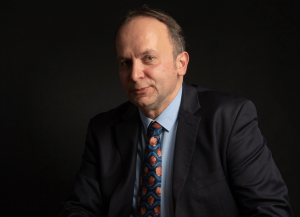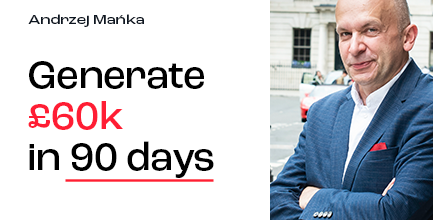Why We Can’t Keep New Year’s Resolutions And How To Change This

Categories

We are born optimists. We believe in impossible things, in travelling through time, and big space discoveries, in an eternal paradise and final victory of good over evil. We believe that every human being contains a divine element so we can pursue the big goals.
Only optimists are able to set up goals, whether small or big. As Helen Keller so eloquently put it, “No pessimist ever discovered the secret of the stars, or sailed to an uncharted land, or opened a new doorway for the human spirit”.
This is why we love New Year’s Resolutions. New Year is a symbol of new start, of new hope, new dreams and new big plans. It is easy to make ambitious financial plans, to cut unnecessary expenses, to plan lucrative investments and to radically increase earnings.
We sometimes love to simply forget about the past events, close the doors behind what has already happened and start a totally new enterprise.
It does not mean that what we want to forget about is mostly failures or unsuccessful things. No! Not at all; sometimes balance is quite good. However…
We dream about a much better world, and much bigger goals.
And if something can be a brand new project that will open new doors, new possibilities and new opportunities, we love it!
As always, at the turn of December and January, people around the world start to launch their resolutions for the coming year. However, research indicates that only around 8% to 10% of them will commit to their resolutions and fulfil them properly. Interestingly, when we look at other spheres of human activity, the statistics are quite similar: only 10% of startup companies will succeed and a few percent of budding investors will become wealthy.
In order to fully understand why we fail to commit to our resolutions, goals and big dreams, whether financial, family, personal, intellectual or sporting…
…we need to analyse the interesting concept of a level of complexity of our reality in XXI.
When we carefully examine modern systems and try to better understand our unclear and sometimes even nonsensical contemporary world, we can see our own psychological condition from a very interesting perspective.
The first level is simple reality…
or simple system (I will be using words system and reality in this article interchangeably). In this world, when I want to do something I will certainly do it. Cause and effect are clear and easy to comprehend within seconds. If I want to brew coffee I will use my coffee machine, water and coffee beans in a predictable way. If I want to know what is going with current affairs I will spend – as I do everyday – 15 or 30 minutes in a front of my favourite TV channel or searching in my beloved portal. Everything in this reality is predictable and safe.
The second level is complicated reality…
which means that the system contains many more factors to take into account. Factors that require more cognitive power. In order to brew coffee, I will first have to check what kind of coffees are available, what the prices are, and how much money I have; whether I can buy it on Sunday mornings or only on workdays, and check what side effects drinking coffee can have on my health etc.
However, even if there are more factors than in a simple system, we can still easily predict that we will finally brew coffee. The same goes for with aeroplanes flying from London to, let’s say, New York:we know that it is certainly a complicated operation that involves a lot factors, but it is possible, well-planned and very predictable.
The third level, and reality we live in, is complex reality…
We do not know what could happen as a result of our decisions. We can, and should, try, plan, persist; however, we cannot predict everything. Well, very often we cannot predict even a tiny percentage of what could really happen.
This is my favourite reality, or system! This is the world we live in, in the XXI century. The only possible strategy is to constantly test, check results and adapt, and then adjust again, and go on to the next test, immediately analyse those results and change strategy once more, in order to achieve desirable outcomes.
In this reality, all things are interconnected and all parts interfere. When A interacts with B, the results will be a not a simple sum of A and B. So if more, many more, factors interact with each other – A with B and with C, D and Z, and B with F and with O, and P with B1 and A3 – we understand that the number of combinations and potential outcomes can be almost infinite.
How does the concept of these three systems help to understand the success or failure of New Year’s resolutions?
When you make a resolution you are in a simple reality: the first plan is your beautiful goal. There are no distractions, no doubts, and no obstacles. There is full hope and power. Your goal is big and resembles a close up in a movie.
Within the next few weeks, after this exciting initial moment, you are slowly moving into a complicated reality. It is probably February. In this reality, your goal is still important and interesting but there are far more interesting different goals. You see that obstacles can be bigger than you thought, and you also realise the higher costs of achieving your New Year’s goal. In this system your goal is still possible to achieve, and you still see very clearly that when you make certain steps, when you do some work, then you achieve the goal. However, it is not so powerful or clear as in the close up of the previous, simple reality: it is now like a master plan in a movie, or a general picture of war, or a whole business strategy.
Finally, we shift to complex reality, when there are hundreds of goals, factors, principles, obstacles, missions, visions, concepts, ideas and informations. Some of them are ours, some of them are our friends’, bosses’, co-workers’, governments’, nations’, churches’, organisations’, and of course there are goals and ideas that are direct results of media propaganda. In this reality – which occurs in March or at the beginning of April, a while after we made our New Year’s Resolutions – there is no longer clear vision; everything is interconnected and results are impossible to predict.
So what is a solution?
To go back to the 1st January, when we made our resolution, to again see our goal as clear, visible, and possible to achieve without any unnecessary context, whether complicated or complex.
The answer is to focus regularly on a resolution. To work on it systematically. To remind ourselves of it often and keep it strong and important. To sacrifice time and energy – perhaps it is enough to spend an hour every Saturday to keep our resolution important in our minds.
Especially because there is a reality that is even more complex than the complex reality mentioned above. It is a chaotic system, where there are no more visible rules. It can be a world during a big financial crisis or during a revolution. And then there is an even more complex and chaotic reality, which is disorder. However, even in the chaotic or disorder system or reality we can still have some influence if we remember the simple system, where our vision and goals are powerful, visible and rational.
As long as we are aware of how systems work, we are able to be successful.
Focus is the answer!
Andrzej Manka


